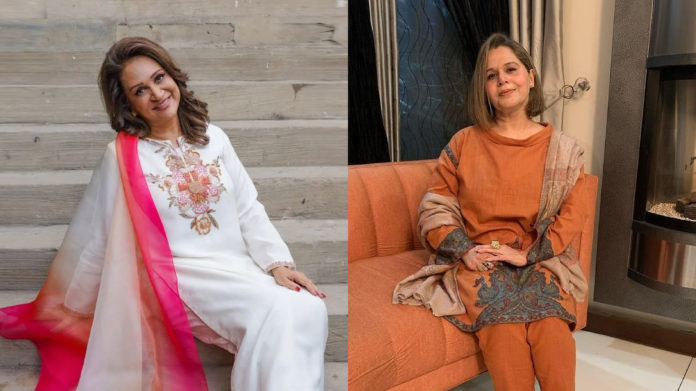Oftentimes, a general belief follows the line of thought where unparalleled talent and relentless gratitude must go hand-in-hand for all those who carve a name for themselves in the fabric of mainstream society. Everyone is human, and everyone can and will make mistakes. However, it is when hints of pride begin to seep in that the entire ordeal becomes tricky – especially when one is a superstar in their own right. Such is the case with renowned, veteran actor, Bushra Ansari.
The Pitfalls Of Fame
Oftentimes, when one reaches a certain level of fame, regardless of who they are and where they come from, an innate sense of elitism finds its way into one’s orbit. This is not to assume that Bushra Ansari is an elitist – with no personal affiliation or interaction, she may as well be a remarkable human being.
However, it is when she passes comments on the very audience that stands in awe of her – that places her on a pedestal, only for her to utilize it as a stepping-stone to look down upon those who elevated her – that it becomes ever-so-slightly irksome.
The Remarks In Question
“Haleem pakate pakate koi humein criticize bhi kar leta hai.” These are the exact words that Bushra Ansari used to discuss the idea of critics on a talk show, with Naumaan Ijaz as the host. While she seems to say this in jest, and the audience erupts in laughter soon after, there is a lot to be unpacked here.
Amma rightfully shared her thoughts on the same, stating that it is these “haleem pakane waleen” who watch the dramas that Bushra Ansari stars in. For one to make their own audience the punch line of a joke is distasteful, and inherently reeks of a latent sense of classism.
In Defense Of “Haleem Pakane Wali”
After all, it is these women who labor for hours in the kitchen in a society set to turn the tide against them, who make up a large, if not the biggest chunk of the audience that engages with the kinds of dramas that are telecast. It is these women who turn on their television sets to find traces of solace as the sweat drips from their brows, immersing themselves into a reality in which they find themselves represented in one way or another. It is these women who make stars the monumental names they are, showering them with love and prayers, engaging with the content that is produced.
The statement by Bushra Ansari begets the question: can “haleem pakane wali” women not be critics? Are their opinions not as valuable as those who converse in the language of our colonizers? Are they inherently invisible, simply because they have been reduced to the labor they may put into their homes?
To say that this is problematic would perhaps be an understatement. The Pakistani woman, in all shapes and forms, has been discredited, ignored, overseen, and unheard for far too long. Why must they then have to prove themselves to be worthy of simply possessing an opinion or criticism?
Power And Accountability
It is said that with great power comes great responsibility. Perhaps, with great influence, great humility must come alongside as well. While Bushra Ansari can and does share her opinion often – and is welcome to do so, for truly, she has been a great source of pride for Pakistan – when that opinion hurts the sentiments of the very audience that showers love upon her, this, too, must be addressed.
Accountability comes in numerous shapes and forms, and often, when it is dodged through unnecessary means, a far greater reckoning brews over the horizon.
Here’s hoping that Bushra Ansari reciprocates the love and respect shown to her, and accommodates constructive criticism towards her by one and all, regardless of whether or not they cook haleem.




